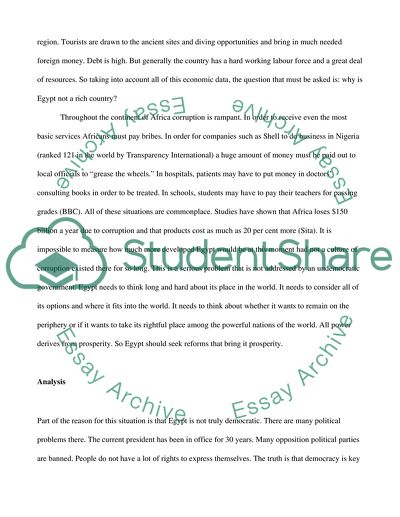Cite this document
(Egypt: A Changing Country Research Paper Example | Topics and Well Written Essays - 2000 words, n.d.)
Egypt: A Changing Country Research Paper Example | Topics and Well Written Essays - 2000 words. Retrieved from https://studentshare.org/politics/1745644-country-study-on-egypt
Egypt: A Changing Country Research Paper Example | Topics and Well Written Essays - 2000 words. Retrieved from https://studentshare.org/politics/1745644-country-study-on-egypt
(Egypt: A Changing Country Research Paper Example | Topics and Well Written Essays - 2000 Words)
Egypt: A Changing Country Research Paper Example | Topics and Well Written Essays - 2000 Words. https://studentshare.org/politics/1745644-country-study-on-egypt.
Egypt: A Changing Country Research Paper Example | Topics and Well Written Essays - 2000 Words. https://studentshare.org/politics/1745644-country-study-on-egypt.
“Egypt: A Changing Country Research Paper Example | Topics and Well Written Essays - 2000 Words”, n.d. https://studentshare.org/politics/1745644-country-study-on-egypt.


